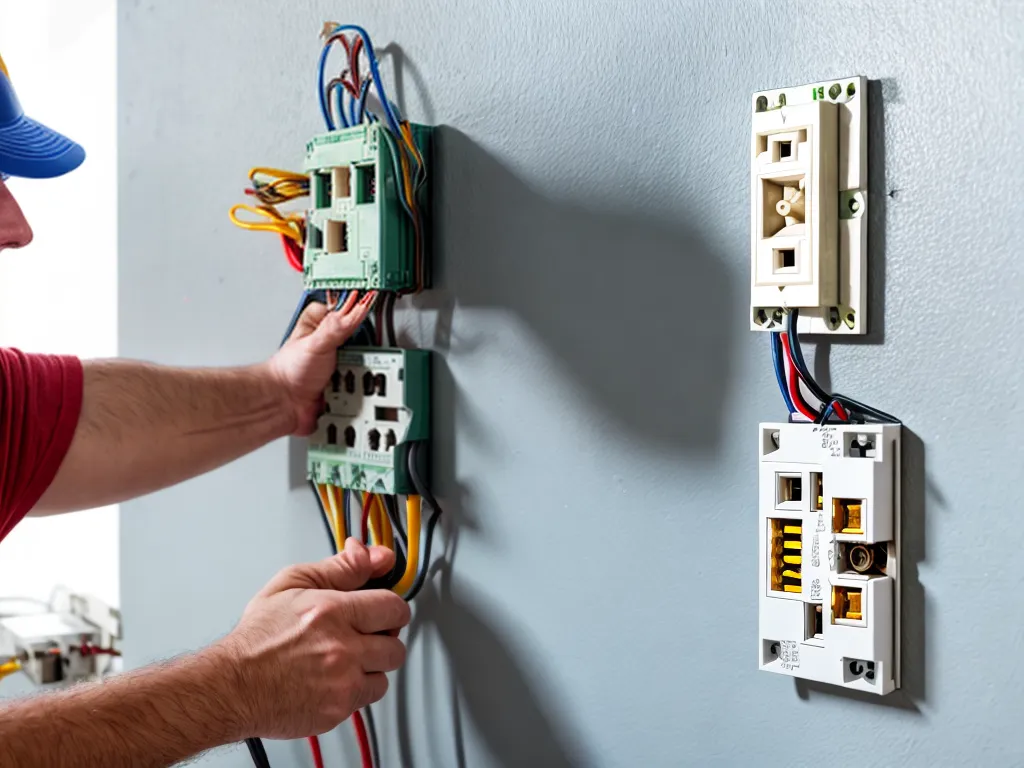
As a homeowner, electrical work can be daunting. Dealing with complicated wiring, the risk of electrocution, and the potential to overload your electrical system means DIY electrical projects should be approached with care. However, hiring a professional electrician can also be very expensive. With some basic knowledge and preparation, you may be able to take on minor electrical projects yourself and save a substantial amount of money in the process.
Learning About Home Electrical Systems
Before doing any electrical work on your home, you need to understand the basics of how home electrical systems work. Some key things to know include:
Electrical Circuits
Your home's electrical system consists of circuits that all connect back to your main electrical panel. Most standard homes have 15-20 individual circuits running to different parts of the house. Understanding which appliances, lights, and outlets are on which circuits is crucial when doing electrical work.
Current and Voltage
Electricity refers to the movement of electrons along a conductor. The rate at which electrons flow is the current, measured in amps. Voltage is the electrical potential, or pressure pushing the electrons. Standard household voltage is 120 volts. Matching voltage and current capacity is vital for electrical safety.
Electrical Panels
The main electrical panel is the central hub that splits power to all the home's circuits. Knowing the capacity of your panel and if you have any open breaker slots is key for any upgrades or additions.
Electrical Codes
All electrical work must follow local building codes and the National Electrical Code (NEC). The NEC specifies things like required wire gauges, connection methods, and safety standards.
Spending time to learn basic electrical principles, terminology, and codes is an investment that will pay off through safer, more successful DIY projects.
Assessing Electrical Project Difficulty
Once you understand the basics, you can better evaluate the difficulty of any electrical project. Safety should be the number one priority.
In general, relatively straightforward tasks like installing a new light fixture, switch, or outlet can be DIY. More complex projects like new circuits, load calculations, and electrical panel upgrades require an electrician.
Consider the following factors when deciding if a project is DIY appropriate:
-
Existing wiring - Is everything easily accessible or will walls/ceilings need to be opened?
-
Electrical panel access - Can you safely turn off power and locate the correct circuit?
-
Complexity - Does the project involve complicated wiring, junction boxes, etc?
-
Experience level - Be realistic about your electrical knowledge and skill.
-
Permits - Major projects require permits and inspections.
Get professional help rather than attempting complex electrical work beyond your skill level. The potential risks are simply too great.
Buying Electrical Supplies
Stocking up on basic supplies will allow you to take on minor electrical repairs and improvements. Focus on purchasing quality materials from reputable electrical suppliers.
Wiring
For most household projects, 12 or 14 gauge NM-B wiring will be suitable. Only buy enough for your specific project needs.
Breakers
For new circuits, obtain a breaker that matches your panel brand and has adequate amperage capacity for the circuit.
Boxed Kits
For installing fixtures, switches, and outlets, boxed kits with all the necessary components make projects simpler.
Tools
At minimum, you'll need a good voltage tester, wire strippers, and multimeter. Insulated tools and a non-contact voltage detector are also recommended for safety. Buy personal protective equipment like safety goggles and electrical gloves as well.
Check local codes before purchasing any materials to ensure compliance. Buying the right electrical equipment is a key part of saving money on projects.
Hiring Electricians for Large Jobs
While a DIY approach can save thousands of dollars on minor electrical work, professionals are required for major upgrades or repairs. Considering the following when hiring an electrician:
-
Referrals/recommendations - Check reviews and talk to friends about electricians they have used.
-
Licensed & insured - Verify their credentials and liability coverage.
-
Experience - Find someone who specializes in whole house rewiring, panel upgrades, etc. if that is your need.
-
Estimates - Get at least 3 quotes to compare rates.
-
Permits - Confirm they will pull any required permits and arrange inspections.
-
Payment terms - Avoid large upfront deposits and don't make final payment until work passes inspection.
Although still expensive, paying market rates for qualified professionals on big jobs is worthwhile for your safety. Focus DIY efforts on smaller projects only.
Following Electrical Safety Precautions
Working with electrical systems can be hazardous, so safety should be your top priority. Some key precautions include:
-
Turn off power at the breaker - Use a contactless voltage detector to double check it is off.
-
Avoid working alone - Have someone present in case of emergency.
-
Limit distractions - No phones or music so you can focus fully on the task.
-
Use personal protective equipment (PPE) like insulated gloves and goggles.
-
Make sure hands are dry when handling electrical components.
-
Be cautious of exposed wires - Treat all wires as live until absolutely confirmed they are dead.
-
Consult local building codes and the NEC to ensure compliance.
Rushing electrical work or ignoring safety is extremely dangerous. Take things slow and steady. Patience and caution will allow you to complete projects safely.
Conclusion
With proper knowledge, preparation, and attention to safety, DIY electrical work can save homeowners thousands of dollars compared to hiring electricians. Stick to minor projects like fixtures and switches rather than complicated wiring jobs. Always put safety first by using extreme caution when working with electrical systems. If at any point you feel unsure or overwhelmed, call a professional rather than risking injury or a fire hazard. With prudence and care, you can gain experience and take on basic electrical repairs and upgrades yourself over time. Just be sure to get licensed electricians for major electrical projects in your home.